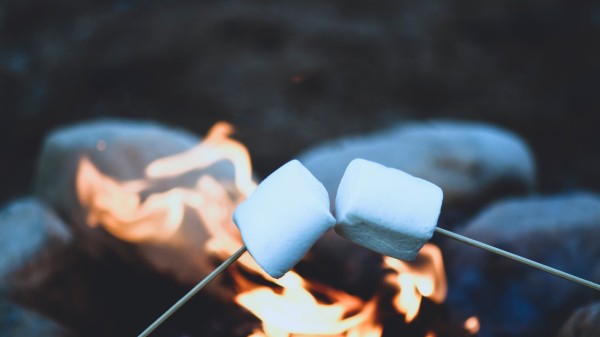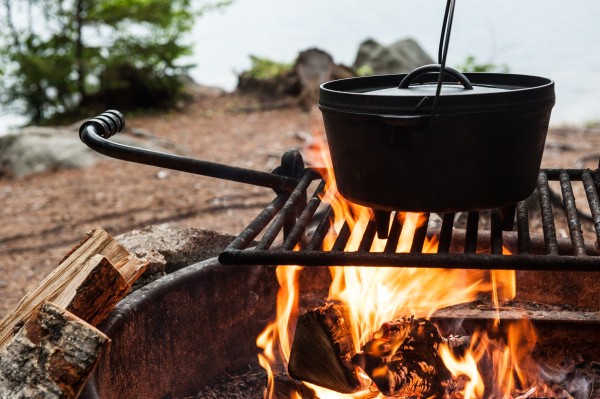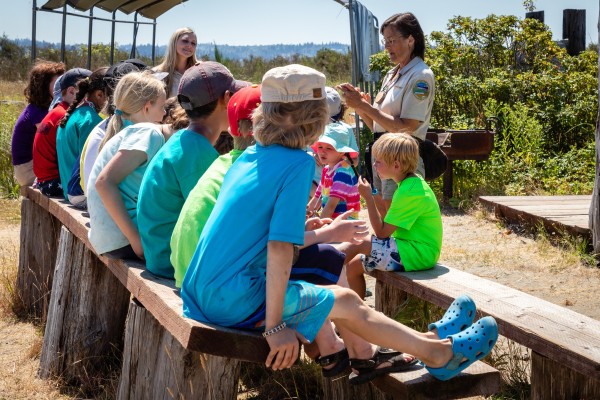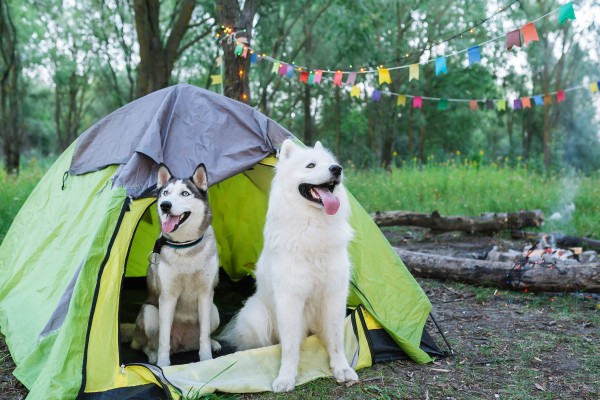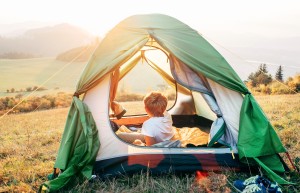 Many plans for vacation travel and events have been cancelled this summer, causing a renewed interest in camping trips. Camping is seen as a cheap way to vacation but the costs can really add up if you are not careful and wind up buying forgotten items. Here are some tips to keep your camping trip affordable and enjoyable for all.
Many plans for vacation travel and events have been cancelled this summer, causing a renewed interest in camping trips. Camping is seen as a cheap way to vacation but the costs can really add up if you are not careful and wind up buying forgotten items. Here are some tips to keep your camping trip affordable and enjoyable for all.
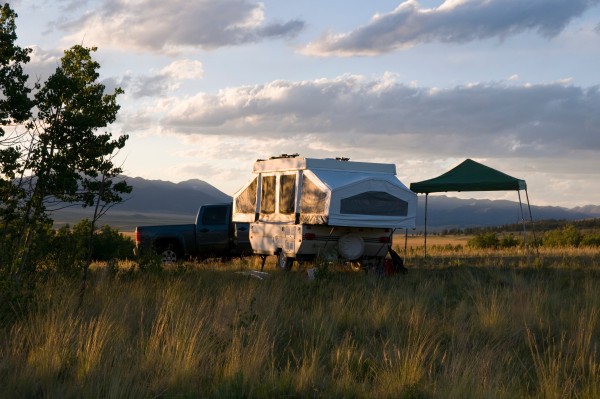
Locations
- Depending on where you live, you may have to travel a bit for good camping. It's important to make sure you have a reservation, otherwise you may not find a spot when you arrive. I always check out the area's state or national parks first. Some areas also have county or local parks that allow camping and many tourist places also have private RV parks or campsites. These sites usually have running water, firepits and firewood available for sale as well as camp hosts or rangers to help out in case of any issues. Sometimes they have showers, camp stores, playgrounds and educational programs available. Some places also rent cabins or yurts for an additional fee, for those who don't want to rough it or for off season camping. It's much easier to have a dry place to get out of the weather, especially if you had a long road trip.
- If you are planning on bringing an RV or tent trailer, make sure the site has the space or layout that you need. Pull through sites are desired for this sort of camping because backing up an RV can be stressful.
- You can camp for free in many national forests or other public lands. The trade off is that you will not have any amenities, like water or toilets and may need to trek away from roads into the wilderness. Extra planning and supplies are needed for this type of rugged camping or backpacking, which could add to the expense.
- If money is very tight, consider camping in your own backyard. This is a great way to introduce small kids to the concept without leaving the comforts of home. Free or inexpensive camping may also be available on a friend or relative's vacation or wilderness property, or even on Airbnb.
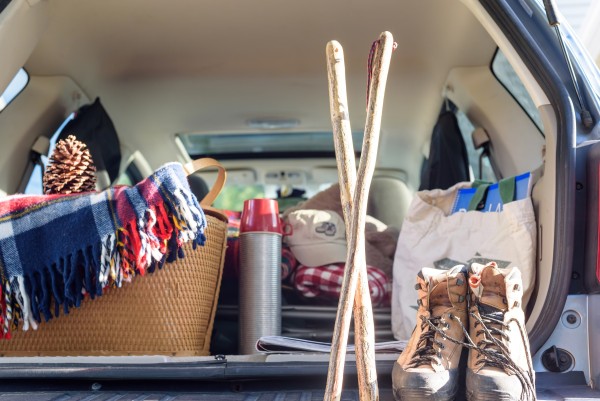
Packing
- Your supply list will change depending on where you are going to be camping. For example, you will need to bring different supplies if you are going to a dry desert climate vs a temperate ocean area or up in the mountains. Be sure to check the weather, both when you start planning and right before you leave to avoid any surprises.
- At bare minimum, you will need to bring a tent if you don't have another place to sleep. These can be found cheaply at the end of the season and are also available at garage sales or on Craigslist. You will need bedding such as sleeping bags, sleeping pads, air mattresses and pillows. If you don't have these supplies, just bring older comforters and blankets to pad the floor and keep your warm. An extra blanket or throw can be nice to have around the campfire at night or to add a layer to your bedding. Some people like to sleep in hammocks but that can be tricky if you are camping with a possibility of rain. Be ready to change sleeping plans if the weather changes. Tarps (with rope or bungee cords) and pop up covers can be very helpful for keeping the area dry.
- Be sure that everyone brings several changes of clothing to keep warm and dry. If you are near water, be sure to bring swimwear and towels. And don't forget jackets and sturdy shoes even if the day seems warm. It can get very cold at night, even during the hottest part of summer and weather can change quickly. I left for a camping trip one hot summer day in shorts and sandals, only to find a torrential downpour that evening. I wound up in a pair of borrowed socks and wrapped up in a beach towel to stay warm.
- In addition to supplies for meals (below), you will also need to have flashlights or lanterns for nighttime. Solar powered lights can be problematic in cloudy or heavily forested areas so plan for battery operated lights instead. Be prepared for every eventuality by bringing a well stocked first aid kit that includes bug spray and sunscreen for prevention. Citronella candles can also help keep the mosquitoes away. Don't forget to bring a "bathroom box" with hand towels and washcloths, tooth brushing supplies, hairbrush, soap, shampoo, and baby wipes for a quick clean up. I like to put my long hair in braids or a ponytail to keep it neat, even if it isn't clean anymore. Solar showers, which heat water throughout the day, are available at most camping stores if the trip is long or a shower is necessary.

Campfire
- A campfire is considered an essential part of the camping experience. Most campsites will have a fire ring or pit already set up. If you are camping in the wilderness, be sure to place your fire in a cleared area. Stones around the firepit help keep the fire contained and prevent anyone from accidentally getting too close.
- A hatchet is essential for splitting firewood into smaller pieces for kindling. Be sure to bring a lighter or flint and dry tinder. If you are unfamiliar with building a fire, you can get fire paste or another type of firestarter to assist you at first. Do not bring firewood from home. Insects can be transported this way and can cause damage to the native plantlife. Most areas that have camping also have local firewood for sale. Some areas even allow you to collect deadfalls for firewood but be sure to check the rules.
- People always enjoy cooking over the campfire and many sites have a grill built into the firepit. Keep in mind that any cookware used will get very sooty and be difficult to clean. Campfire recipes range from Dutch oven to campfire packets to a sharpened stick for hot dogs or marshmallows.
- Keep the fire small and be sure to bring a fire extinguisher, just in case. Be aware of the fire levels, which are usually clearly marked. Later in the summer, many areas don't allow fires to prevent any wildfire risk. Do not leave a fire burning, be sure to put it out entirely before leaving your campsite unattended.

Meals
- You will want to bring a cooler for food and drink and a propane stove for cooking, unless you are planning on cooking on a grill or right over the campfire. Your regular cookware can be used but many people prefer to have an extra set for camping. Bring cooking utensils and don't forget aluminum foil and plastic storage bags, to store uneaten food. Some campers opt for disposable or paper plates to minimize dishes. Bring a large dishpan that can hold your largest cookware for washing up afterwards. I like to have one for washing and one for rinsing. I also always bring a biodegradable dish soap rather than my regular brand. This way, I can toss the dirty dishwater without causing problems for the local wildlife.
- I will often make foods ahead to avoid work and dishes at the campsite. Soups and stews can be frozen at home to be heated up when needed. This also helps keep the cooler cold. I also bring hot dogs and lunch meats for a quick snack or meal anytime. Although I often make bacon and eggs or pancakes one day for breakfast, I'll usually pack individual cereals, pastries or yogurt for hungry mornings. And don't forget to bring the fixings for 'smores, especially if you are camping with kids.
- Be sure to keep your food locked up when you are not eating. Many wildlife are very savvy about people food and can get into most packaging if they are determined. I have had crows tear apart an unopened bag of brightly colored candy, pecked into my hamburger buns and steal fruit right off the serving plate. Raccoons and other animals can get into the trash or your dog's food bowl if left out. And if you are in an area that may have bears, it is even more important to make sure there is nothing for them to get. Pay attention to the warnings when you first arrive to prevent issues later. I usually leave my food in the back of my car unless we are preparing meals.
- Be sure to plan for travel meals too. It's easy to make sandwiches before you leave the campsite from your leftover food. This will save you from buying fast food. Avoid sit down restaurants if the camping trip has been long as you may not feel clean enough to be out in public. Of course, if you are in an RV or managed a shower before you left, a meal in a restaurant can be a special treat on the road.

Activities
- Activities are very dependent on the age of your campers. Younger kids will often amuse themselves by exploring the campsite. If you have space, bikes can be good for both transportation and entertainment. Board or card games are a great way to bring young and old together as are books or stories around the campfire.
- Camping crafts can be very popular and provides a souvenir of your time. Rock painting is fun and good for any age. Even a coloring book and crayons or colored pencils can be fun to while away the time until dinner is ready. Of course, any portable craft like whittling, crochet or knitting can be worked on anywhere. And many people like sorting or stacking rocks to create a temporary artwork that causes no damage. Do not pick wildflowers or vegetation and leave wildlife alone. This helps preserve the natural area for all to enjoy.
- If you are at a state or national campground, they may have educational programs about the area. Some are designed for kids and others are good for any age. Some places have an evening campfire program that bring the entire community together. There are also guided hikes, which can feel safer and be more informative that hiking alone.
- If you do decide to go on a hike, be sure to note where and when you are going at the trailhead or ranger's station. This might save your life in case of an emergency. Be sure to bring basic supplies, first aid and water. Teach your kids to stay on the paths and to take pictures instead of picking up souvenirs. If you are camping or hiking near the beach, be aware of the dangers there too. Every year, people are swept out to sea by unexpected sneaker waves or riptides.

Pets
- Dogs generally love camping whereas other pets would probably be happier to be left at home. Keep in mind that the dog must be leashed at all time and should never be left unattended. If you can get an overhead line for their leash, the dog can run back and forth as they like.
- Be sure that your dog is not the type to bark and bother other campers or the wildlife. Feed them small amounts at a time to make sure that the local wildlife don't get too interested in the leftover food. We left our dog's food bowl out one night only to be woken up in the middle of the night to two wild animals fighting over it, right next to our tent.
- We would bring our dog directly into our tent at night, with a dog bed right by the front door. Some people lock their dogs into the car overnight and others bring a crate for the campsite. Just pick the option that you think will best suit your pet. Be sure to bring extra towels in case they get in water and need to be dried off. And check carefully for ticks after you return home.
Preparation and planning is the key to a frugal camping trip. Anything forgotten at home must be purchased on the trip or done without. I hope these tips will help you plan out your own successful camping trip this summer. If you have any advice, please share it with us. Happy camping!

 Many plans for vacation travel and events have been cancelled this summer, causing a renewed interest in camping trips. Camping is seen as a cheap way to vacation but the costs can really add up if you are not careful and wind up buying forgotten items. Here are some tips to keep your camping trip affordable and enjoyable for all.
Many plans for vacation travel and events have been cancelled this summer, causing a renewed interest in camping trips. Camping is seen as a cheap way to vacation but the costs can really add up if you are not careful and wind up buying forgotten items. Here are some tips to keep your camping trip affordable and enjoyable for all.


